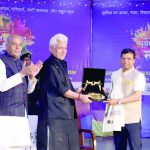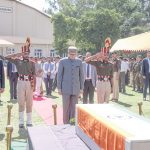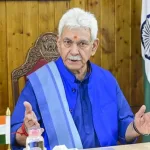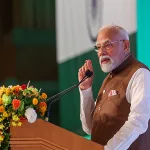Srinagar, MAR 29: While digital resources are transforming education worldwide, schools across Jammu & Kashmir are struggling to keep up, with the absence of digital libraries emerging as a major hurdle. This widening gap raises significant concerns over students’ access to modern learning materials and resources.
Despite various government initiatives aimed at digitizing education, many schools in the re-gion continue to rely on traditional textbooks, restricting students’ exposure to the vast online knowledge repositories, research journals, and e-books available today.
Official data reveals a stark reality: over 98% of educational institutions in J&K lack digital library services. Of the 24,296 government and private schools, only 373 provide digital li-brary access — a mere 1.5% of the total. This digital divide highlights the urgent need for enhanced access to online learning resources.
An official at DSEK, speaking on condition of anonymity, acknowledged the issue. “While the importance of digital libraries is widely recognised, several challenges have hindered their implementation in many schools. Infrastructure limitations and the lack of essential digital equipment remain major obstacles. We are aware of this gap and are working to-ward a solution, but it will take time before a comprehensive system is in place.”
Experts in the education sector are raising alarms about the impact of this digital gap, em-phasiding that students in J&K are at a significant disadvantage compared to their peers in other parts of India.
“Digital libraries are no longer a luxury but a necessity in modern education,” said an edu-cationist, who requested anonymity. “Students need access to up-to-date study materials, interactive learning tools, and global knowledge resources to remain competitive on both na-tional and international levels.”
The lack of digital resources is also a source of frustration for students. Amaan, a Class 12 student, expressed his dissatisfaction, stating, “We often have to rely on outdated books or borrow study materials from friends. In other states, students can access digital libraries for the latest research papers and exam preparation materials. We feel left behind.”
Similarly, Danish, a Class 11 student, echoed these concerns. “A digital library would make studying much easier. Right now, we have to either buy expensive books or rely on whatev-er is available in school, which is not always enough.”
For many parents, the absence of digital libraries in schools has resulted in additional finan-cial strain, as they try to provide alternative learning resources for their children.
“Not every family can afford expensive coaching classes or costly textbooks,” said Mehnaz, a mother of two school-going children in Srinagar. “If schools had digital libraries, our chil-dren could access quality education without these extra costs. The government needs to pri-oritize this issue.”
Khurshid Khoja, President of the Parents Association of Private Schools Kashmir (PAPSK), called the absence of digital libraries a serious flaw in the education system. “Dig-ital libraries are essential in today’s world, yet many schools fail to provide this facility,” he stated. “Students are being deprived of access to quality and updated information.”
Khoja also highlighted that some schools charge annual fees for digital libraries that they do not even provide. “Parents are paying for a facility that doesn’t exist, which is unfair,” he said, urging the education department to intervene and ensure that students have access to the digital resources necessary for their academic growth.
Syed Rufaida Souleh, spokesperson for the Private Schools’ Association, acknowledged that while private schools are committed to providing quality education, many budget schools are facing challenges in implementing digital libraries due to various obstacles.
“Many of these schools face bureaucratic delays and complex education policies, which make it difficult for them to focus on additional improvements like digital libraries,” she ex-plained. “Until these foundational issues are addressed, such advancements will remain out of reach.”
Souleh called on the government to introduce a clear and supportive education policy that would *allow all schools, irrespective of their financial status, to offer digital library services. “A well-structured policy would help schools enhance their digital infrastructure and ensure that students have access to modern learning resources,” she added.
Despite multiple attempts to reach G N Itoo, Director of School Education Kashmir (DSEK), he was unavailable for comment.
As concerns mount, immediate action is necessary to bridge the digital divide in Jammu & Kashmir’s educational institutions.








